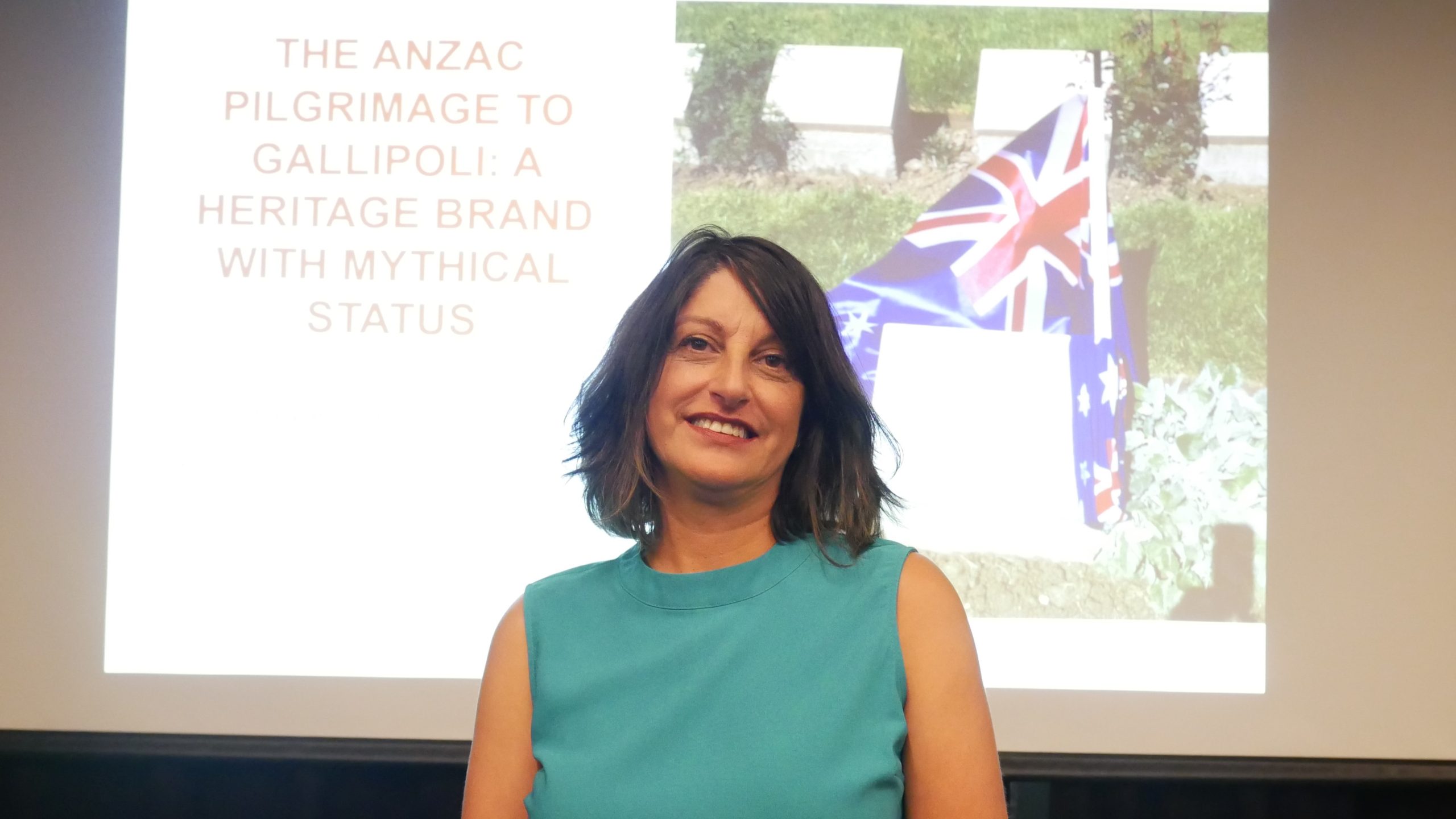On Thursday, April 27, Senior Lecturer at William Angliss Institute and course leader of the Bachelor of Event Management, Dr Effie Steriopoulos, gave a seminar at the Greek Community of Melbourne’s (GCM) Greek Centre.
The seminar, “ANZAC Pilgrimage to Gallipoli: A heritage brand with mythical status,” was presented and discussed in detail.
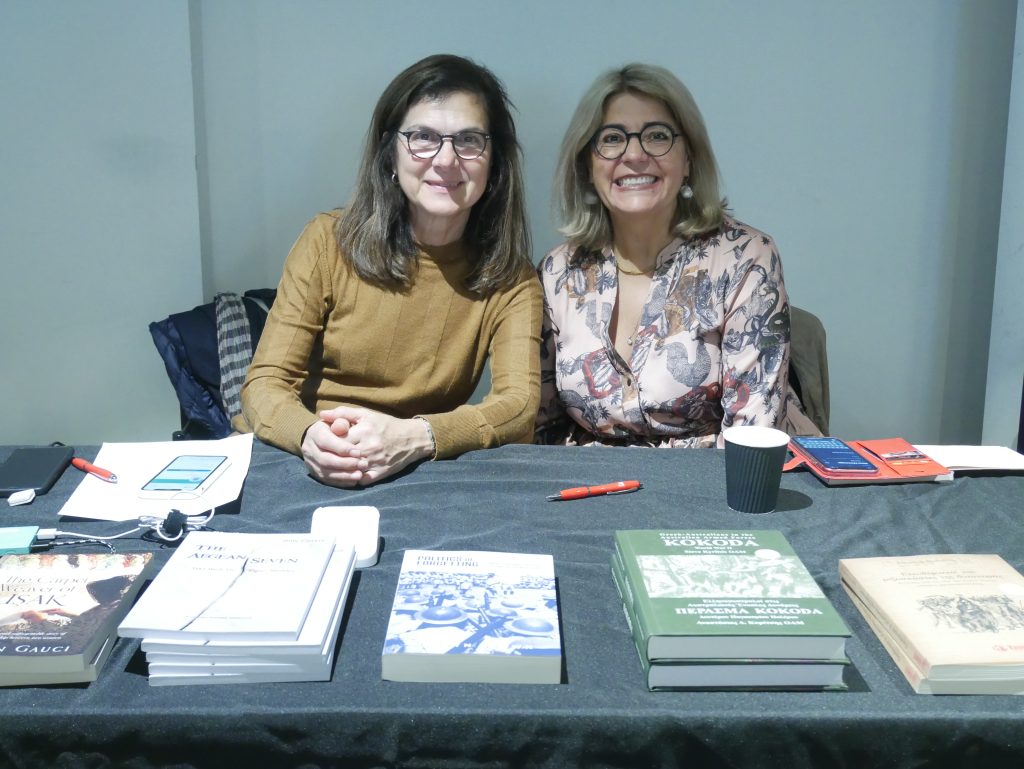
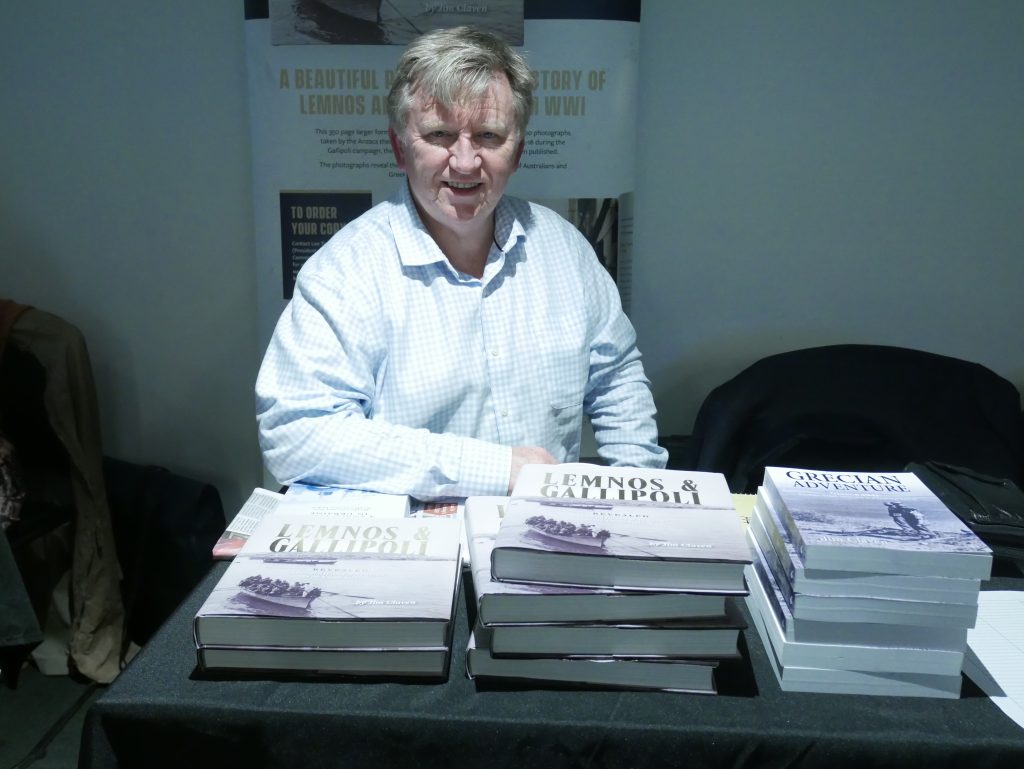
During the seminar, Dr Steriopoulos explained how a new transformative brand experience (TBE) model can be applied to the ANZAC history and its connection to Greece during the two World Wars.
“We are here to listen to how transformative experiences can be developed at destination brands and the ANZAC story is a good example that has been used as a transformative experience in Gallipoli,” Dr Steriopoulos told The Greek Herald.
“The ANZACs are important for Australian history, but there are other similar experiences that might be relevant for other countries that can be similarly developed at key heritage sites.”
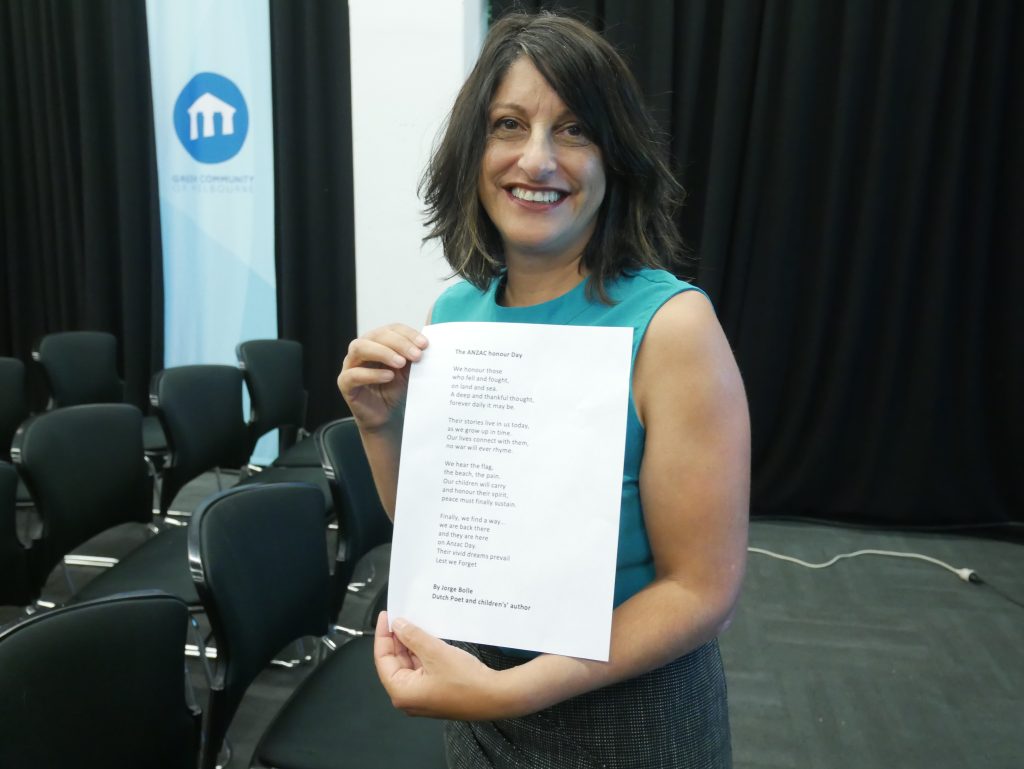
The seminar event was opened by GCM Education Chair, Nick Dallas, and after his welcome, John Pandazopoulos MP spoke about what is known as ‘dark tourism.’
Mr Pandazopoulos described how ‘dark tourism’ has to do with areas such as conflict sites and prisons, and said that a lot of knowledge is emerging in this space.
“It’s about bringing back the stories of the past and them challenging us,” Mr Pandazopoulos said.
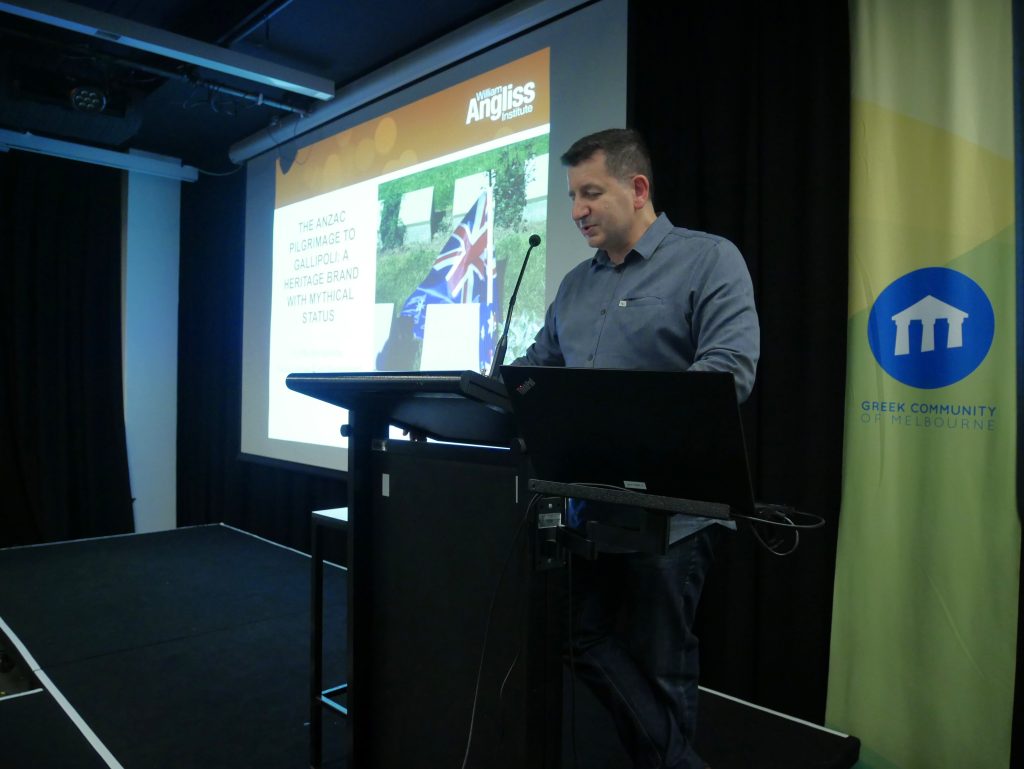
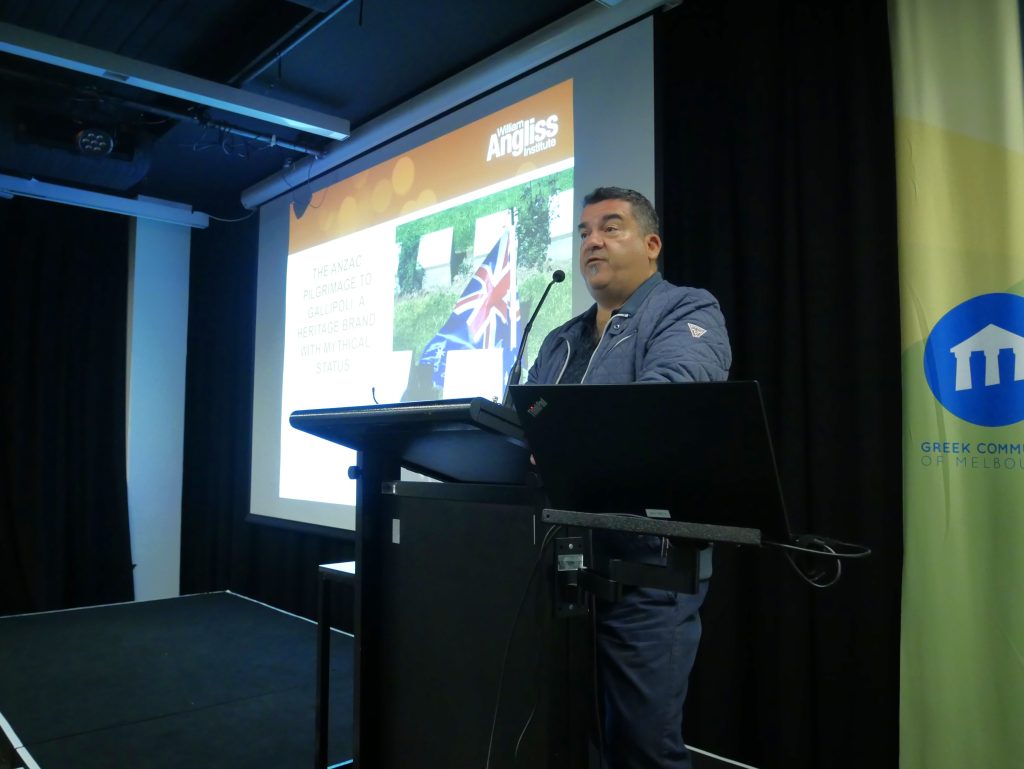
During her seminar, Dr Steriopoulos highlighted several points, including how the ANZAC pilgrims to Gallipoli felt a variety of emotions and the experience seems to have had an impact in people’s lives. After the pilgrimage experience, individuals showed signs of a stronger connection to the ANZAC brand. It was said that there is a link between feelings and the transformative experience.
“In Gallipoli, there are authentic objects, there are signs, there are monuments, but also people create their own authentic interpretations by having social interactions,” she said and explained how the key elements of a transformative experience were “authenticity, sensory experience, emotional engagement, and reflective learning.”
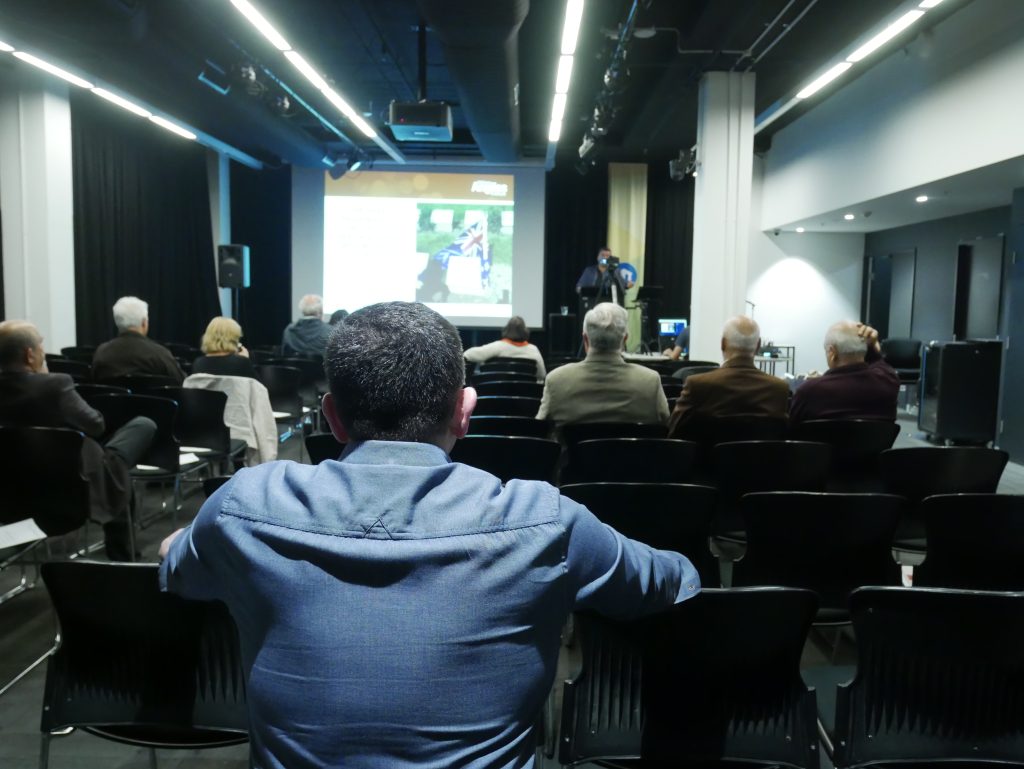
At the end of her lecture, Dr Steriopoulos referred to how the findings and the TBE model can be used in the future.
“The result of my PHD is applicable to other experiences. It highlighted how important it is for academics and industry and government to talk together about designing something meaningful for visitors,” she concluded.
At the end of the seminar, a poem by Dutch Poet and children’s author Jorge Bolle, was presented:
The ANZAC honour Day
We honour those
who fell and fought,
on land and sea.
A deep and thankful thought,
forever daily it may be.
Their stories live in us today,
as we grow up in time.
Our lives connect with them,
no war will ever rhyme.
We hear the flag,
the beach, the pain.
Our children will carry
and honour their spirit,
peace must finally sustain.
Finally, we find a way…
we are back there
and they are here
on Anzac Day.
Their vivid dreams prevail
Lest we Forget
*All photos The Greek Herald / Giorgos Psomiadis.

